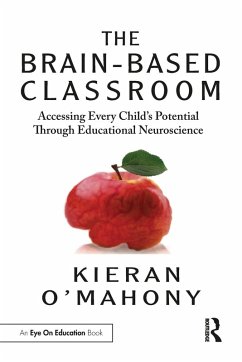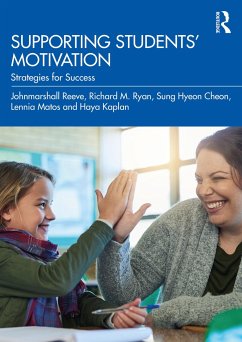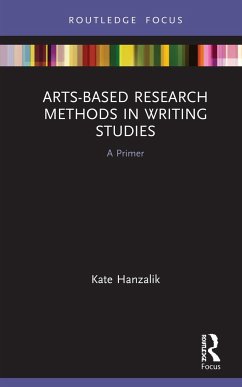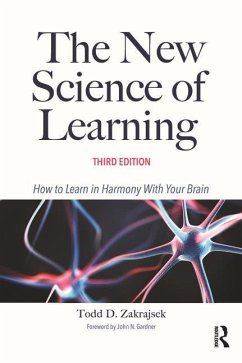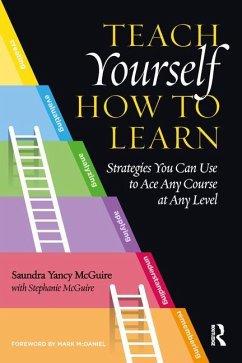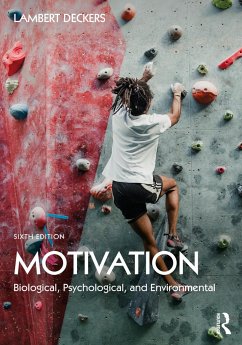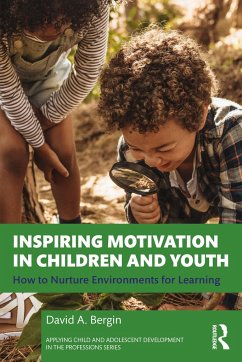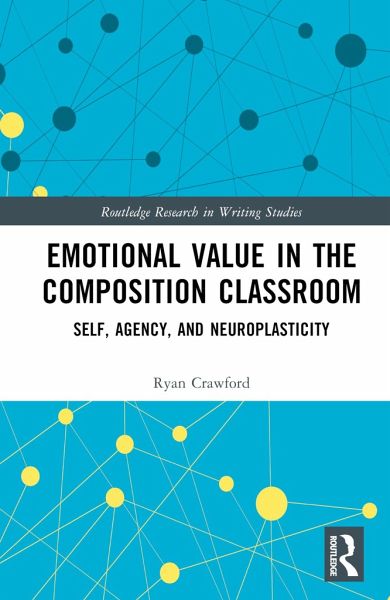
Emotional Value in the Composition Classroom
Self, Agency, and Neuroplasticity
Versandkostenfrei!
Versandfertig in 6-10 Tagen
154,99 €
inkl. MwSt.
Weitere Ausgaben:

PAYBACK Punkte
77 °P sammeln!
Using the concept of "plasticity," or the brain's ability to change through growth and reorganization, as a theoretical framework, this book argues that encouraging an exploration of the self better establishes emotional value in the composition classroom.This book explores recent evidence from studies in modern neuroscience to provide biological correlations between current and developing theory and pedagogy in Composition Studies. Starting with the concept of self, each subsequent chapter builds a neurobiological understanding of how emotional value, intrinsic motivation, creativity, and hap...
Using the concept of "plasticity," or the brain's ability to change through growth and reorganization, as a theoretical framework, this book argues that encouraging an exploration of the self better establishes emotional value in the composition classroom.
This book explores recent evidence from studies in modern neuroscience to provide biological correlations between current and developing theory and pedagogy in Composition Studies. Starting with the concept of self, each subsequent chapter builds a neurobiological understanding of how emotional value, intrinsic motivation, creativity, and happiness are constructed and felt. This material exploration shows how these factors can maintain motivation, improve long-term memory, encourage creative risk, and initiate complex considerations of being. Recognizing the shift in Composition Studies to posthuman and new materialist methodologies, this modern neuroscience is presented as a useful parallel to-rather than being at odds with-these and other current methodologies, theories, and pedagogies.
Outlining the need for a more student-focused, guided-discovery framework for the composition classroom, this interdisciplinary resource will be of interest to scholars and students in the field of Composition Studies, Communication Studies, Education, Psychology, and Philosophy.
This book explores recent evidence from studies in modern neuroscience to provide biological correlations between current and developing theory and pedagogy in Composition Studies. Starting with the concept of self, each subsequent chapter builds a neurobiological understanding of how emotional value, intrinsic motivation, creativity, and happiness are constructed and felt. This material exploration shows how these factors can maintain motivation, improve long-term memory, encourage creative risk, and initiate complex considerations of being. Recognizing the shift in Composition Studies to posthuman and new materialist methodologies, this modern neuroscience is presented as a useful parallel to-rather than being at odds with-these and other current methodologies, theories, and pedagogies.
Outlining the need for a more student-focused, guided-discovery framework for the composition classroom, this interdisciplinary resource will be of interest to scholars and students in the field of Composition Studies, Communication Studies, Education, Psychology, and Philosophy.




